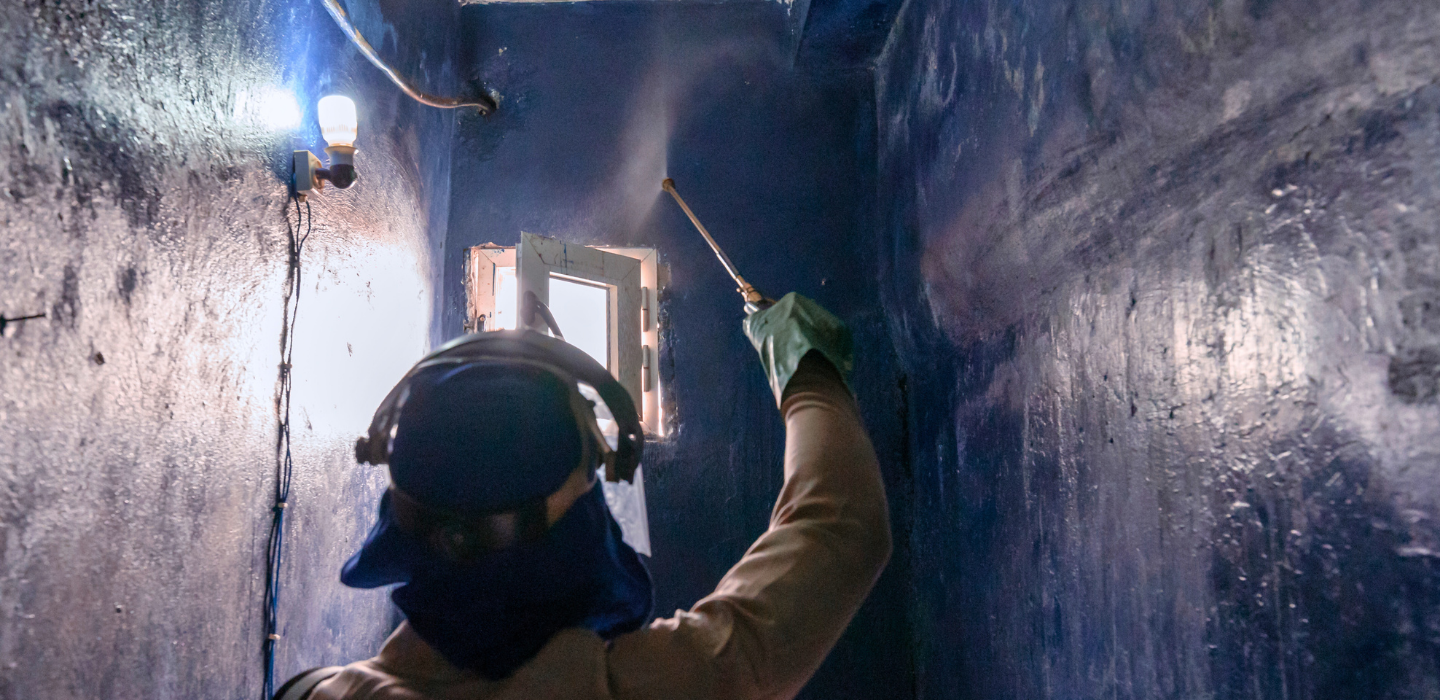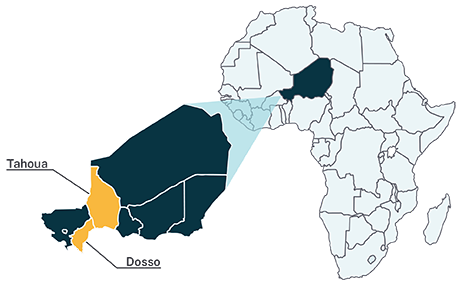Outreach, Training, and Supportive Supervision
MCD pioneered the outreach, training, and supportive supervision (OTSS) approach while implementing PMI’s Improving Malaria Diagnostics (IMaD) flagship program. In partnership with ministries of health, we strengthen the capacity of health workers across the world with a cycle of assessments and feedback — based on integrated OTSS visits, mentorship, and lessons learned workshops for continuous quality improvement.
MCD continues to innovate and implement OTSS activities and integrate other health interventions, such as mother, newborn, and child health, reproductive health, and family planning, in this tool. With MCD's support, many countries adopted OTSS as their national integrated supervision tool.
Diagnostics Training Programs
We develop and deliver malaria diagnostics refresher training programs that build health workers’ ability to quickly and accurately diagnose malaria cases.
MCD introduced the first competency-based curricula for laboratory staff performing malaria microscopy and rapid diagnostic tests (mRDTs) to 14 countries, enabling ministries of health to assess health worker competencies against internationally recognized standards for malaria microscopy and rapid testing.
Working with staff at hospitals, health facilities, and community health workers, we offer basic and advanced malaria diagnostic refresher trainings, trainings of trainers, and expert-level certification programs.
We continue to develop e-learning resources to improve the diagnosis and clinical management of malaria and other febrile illnesses.
Rapid Diagnostic Testing
We support national malaria control programs to develop and implement plans for rapid diagnostic testing (mRDTs) at health facilities and in the community for integrated case management of malaria. MCD continues to train health workers on mRDT use, interpretation, and quality assurance at all levels of the health system.
Supporting National Slide Banks
Banks of well-characterized and validated malaria slides are critical to support competency testing and quality improvement of microscopists.
In Equatorial Guinea, MCD developed the first national slide bank in Africa that conformed to WHO requirements. Since then, our WHO Level 1 certified malaria microscopy experts have assisted other countries in developing quality assured malaria blood slides that can be used for training, quality assurance, and proficiency testing of laboratory technicians.
Our expert teams continue to lead the development of similar slide archives in other countries, including Côte d'Ivoire, Ghana, Kenya, the Democratic Republic of Congo, Madagascar, Malawi, Sierra Leone, Tanzania, and Zambia. The standard operating procedures for these banks formed the basis for the WHO’s guidelines for slide banking and validation.
We are also piloting new approaches that make use of digital malaria slides to train laboratory technicians in malaria diagnostics or maintain their slide reading skills.
Quality Case Management
MCD specializes in improving the quality of malaria care and treatment for both uncomplicated and severe malaria cases in public and private facilities.
We provide input on global malaria treatment guidelines and support ministries of health in numerous countries in updating their guidelines. With our refresher trainings and supportive supervision, we ensure that malaria cases are managed efficiently and by the most recent guidelines, and, through these efforts, clinicians and supervisors become local leaders and mentors in malaria treatment.
Our work with integrated community case management has been implemented in Benin, Bolivia, Madagascar, Malawi, and South Africa. We continue developing e-learning resources to help improve clinical management of malaria and non-malarial febrile infections in distant health facilities.
Training and Accreditation in Clinical Management
MCD designed a five-day, competence-based training for clinical supervisors and with adaptation to clinicians that focuses on the following competences:
- Differentiating uncomplicated malaria from severe and complicated malaria;
- Using rapid diagnostic tests appropriately;
- Calculating the correct dose;
- Selecting the proper treatment for different scenarios of malaria in pregnancy;
- Counseling caretakers to increase adherence; and
- Recognizing danger signs.






